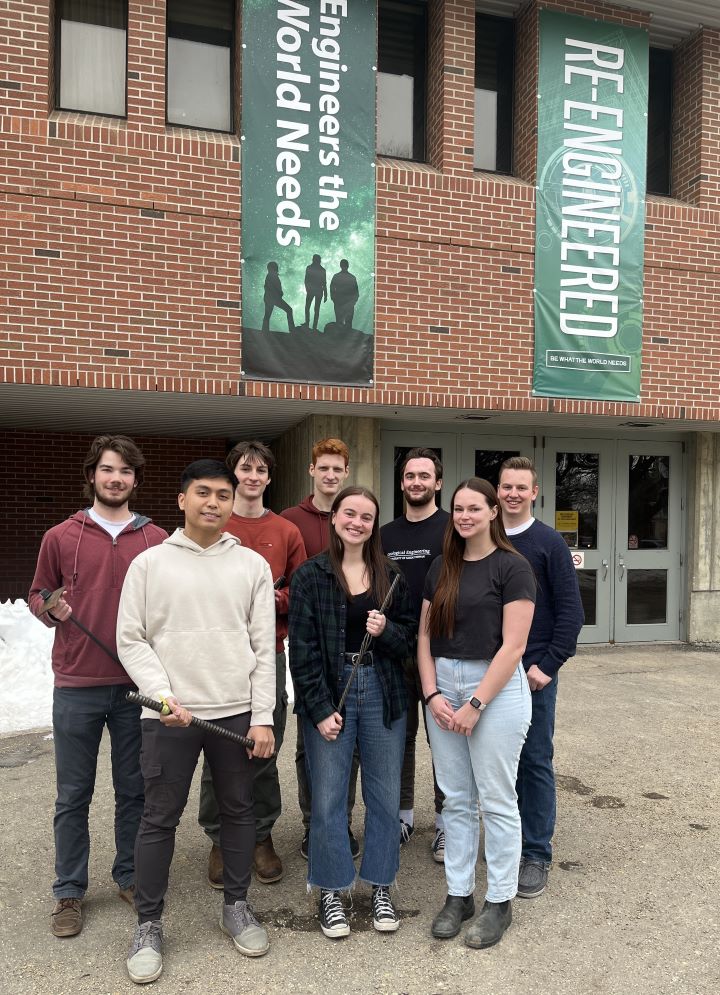
Industry supports students pursuing mining careers
Nineteen students from the University of Saskatchewan College of Engineering (USask Engineering) just received a financial boost in support of their decision to pursue a career in mining.
The one-time infusion of $1842 per student was provided by the Mining Industry Human Resources Council (MiHR). It's an independent, non-profit organization that leads collaboration between educational institutions, industry, labour and Indigenous groups to solve labour market challenges in Canada's mining industry.
The students are all enrolled in one of the Mining Options offered by USask Engineering.
“Mining is a critical industry and we need to ensure we are educating the engineers needed in Saskatchewan and beyond,” said Donna Beneteau, assistant professor in the Department of Civil, Geological and Environmental Engineering. “Our students are extremely grateful for this support.”
“The Financial Scholarship Support Program shows students they are supported in mining programs and that they can help Canada be the world leader in safe, sustainable mining,” said Ryan Montpellier, MiHR’s executive director.
About USask Engineering mining options:
Created at USask Engineering in 2015 with $1.67 million in funding from industry
Consist of at least 15 credit units, none of which are core courses
Geological Engineering mining option: Provides a foundational knowledge of mining operations. Curricular emphasis is placed on ventilation, drilling and blasting, mine design, excavation techniques, and mineral deposits.
Chemical Engineering mining option: Focuses on the discipline of Mineral Processing.
Mechanical Engineering mining option: Students take five courses with a curricular emphasis on earth processes and fluid power circuits, and also complete a mandatory minimum 12-month work placement through the Engineering Co-op Internship Program.

